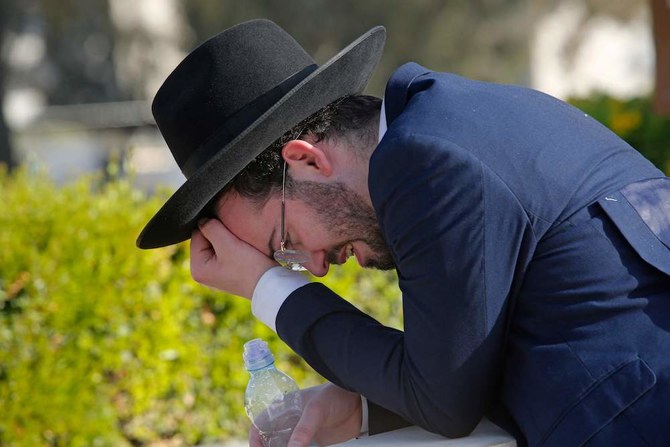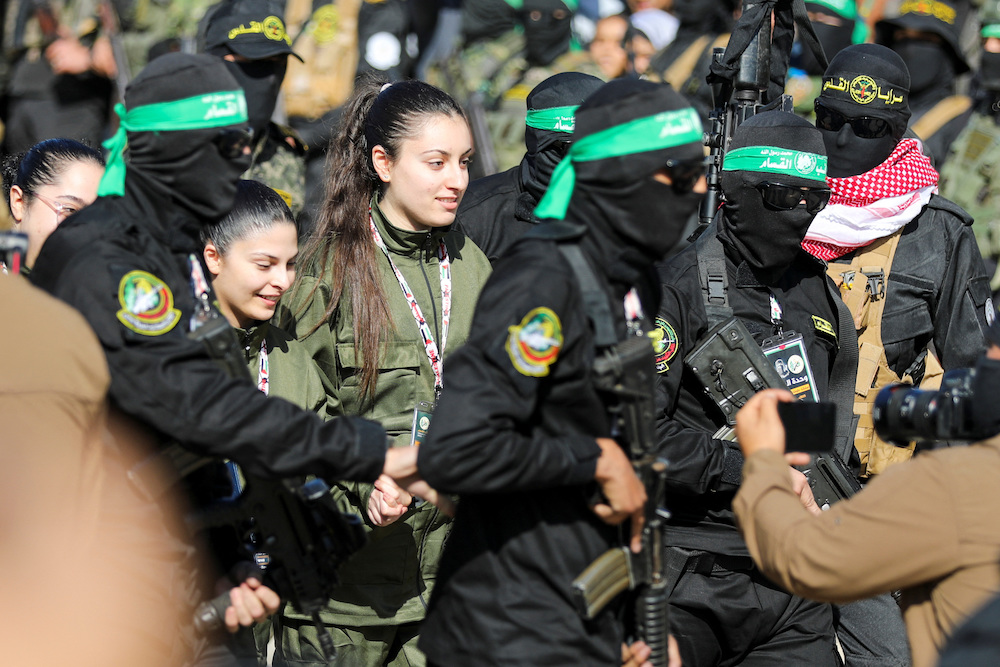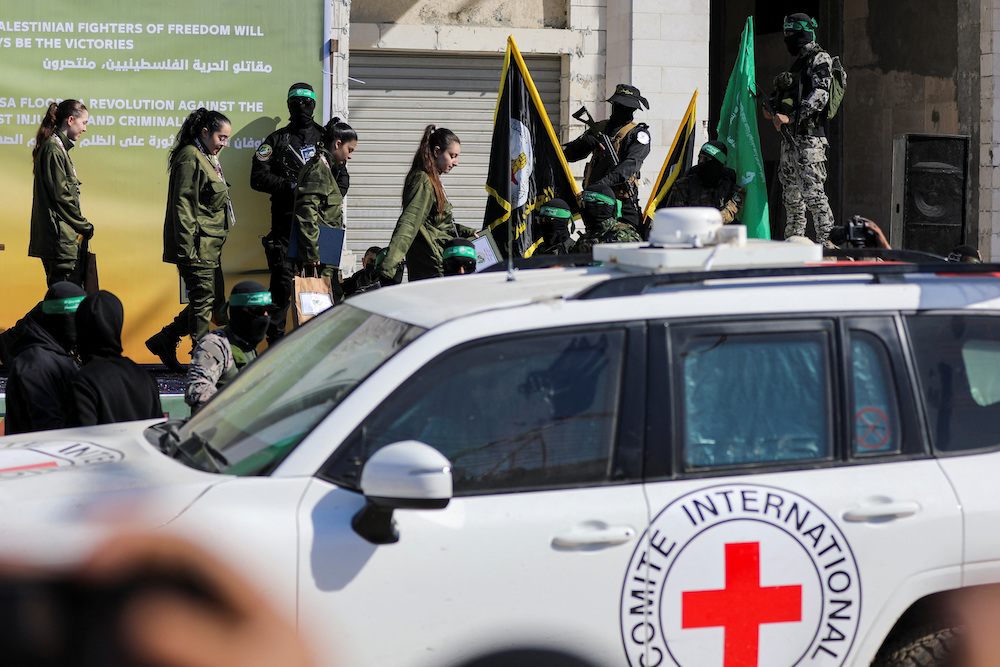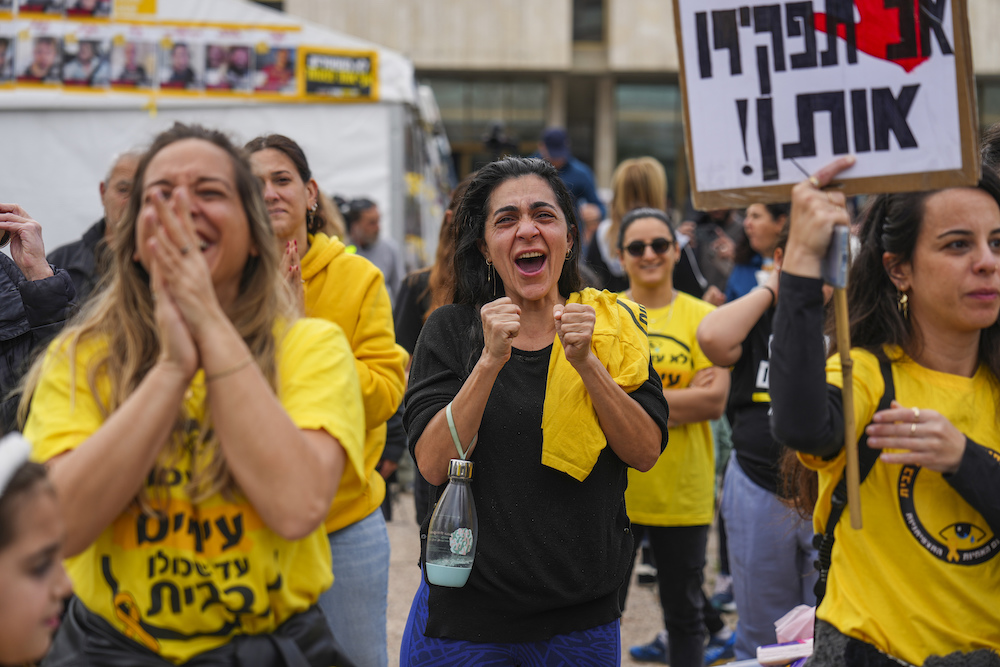MOUNT MERON, Israel: Israel on Friday was burying victims of a stampede at a Jewish pilgrimage site that killed at least 45 people, as Prime Minister Benjamin Netanyahu promised an investigation into one of the nation's "worst disasters."
President Reuven Rivlin received condolence messages including from Australia, the Vatican, King Abdullah II of neighboring Jordan and from across Europe.
"The loss of life among worshippers practising their faith is heartbreaking," said US President Joe Biden in a statement, adding that Washington was seeking to confirm reports that American citizens were killed or wounded in the stampede.
Britain's Queen Elizabeth II said in a message of condolence she was "deeply saddened by news of the disaster."
The nighttime carnage struck after pilgrims thronged to Meron at the site of the reputed tomb of Rabbi Shimon Bar Yochai, a second-century Talmudic sage, where mainly ultra-Orthodox Jews, or haredim, mark the Lag BaOmer holiday.
The health ministry put the toll at 45 dead. The Magen David Adom rescue agency said an estimated 150 had been injured.
With families anxious to bury loved ones before the Shabbat break, funerals were held in Jerusalem and the mainly ultra-Orthodox city of Bnei Brak, where haredi men in traditional long black coats lined the streets to mourn.
Shalom Levy, attending a funeral, called the stampede "a tragedy for the Jewish people".
Among the victims was 38-year Elazar Goldberg, whose father called on God to protect his children as his son was laid to rest in Jerusalem.
The pilgrimage was the largest public gathering in Israel since the Covid-19 pandemic erupted last year.
Officials had warned overcrowding could fuel viral spread, and only authorised 10,000 to attend the tomb compound.
Israeli media outlets said 90,000 massed at the site, a figure that could not be immediately confirmed from official sources.
There were conflicting reports about what caused the deadly crush, but multiple witnesses said scores of people trampled each other as they moved through a narrow passage.
"What happened here is heartbreaking. There were people crushed to death, including children," Prime Minister Benjamin Netanyahu said following his visit.
The "Mount Meron disaster" was "one of the worst to hit" Israel since its foundation seven decades ago, he added, promising a "thorough, serious and in-depth investigation in order to ensure that such a disaster does not recur".
He declared that Sunday would be a national day of mourning.
Closed last year due to coronavirus restrictions, this year's pilgrimage drew tens of thousands of people who were seen packed together joyfully singing, dancing and lighting bonfires before the deadly crush.
In a cruel irony, the BaOmer holiday celebrates the end of a plague that killed thousands of Talmudic students at the time of Rabbi Bar Yochai.
Some witnesses blamed police for not allowing people to exit through a ramp that could have allowed them to escape the crush.
The police "closed it (the ramp). Then, more people arrived, and more and more... and police wouldn't let them exit, so people started to fall on top of each other", Shmuel, 18, told AFP.
There were also indications that pilgrims sought to burst through iron sheet barricades as the choke-point formed.
"It took me back to the period of (Palestinian militant) bombings. There was chaos, people trying to save themselves as they crushed each other," Dov Maisel of the United Hatzala rescue services told army radio.
Northern Israel's police chief Shimon Lavi told AFP his officers had done all they could to save lives on a "tragic night", helping to ferry those injured to hospital.
Lavi told reporters he was prepared to assume "overall responsibility".
Military and rescue service helicopters evacuated the wounded across the country.
Scenes from Meron hours after the accident showed an ultra-Orthodox Jewish crowd in distress, the men in long black coats and wearing black hats, and debris scattered across the ground.
Survivors lit candles for the victims while others prayed. A row of bodies covered in plastic bags lay on the ground.
Relatives of those affected were flocking to the National Center of Forensic Medicine in Tel Aviv, where victims were being identified.
Some voiced frustrations to reporters over delays as they pushed to claim bodies before Shabbat.
Israel has fully vaccinated more than half of its 9.3 million population against the coronavirus, but restrictions on massive public gatherings remain in place to stem the spread of the virus.
Ultra-Orthodox Jews have throughout the pandemic shown resistance towards health and safety measures mandated by the government.


























